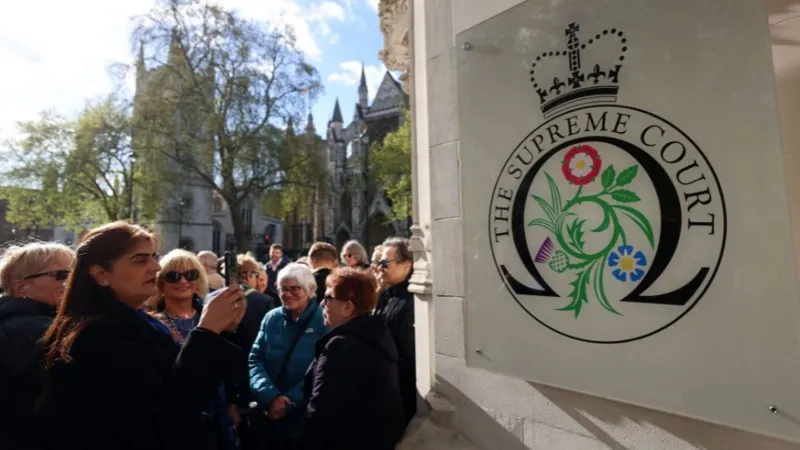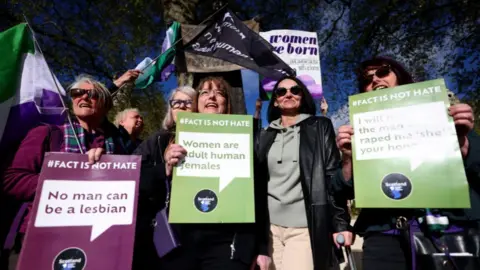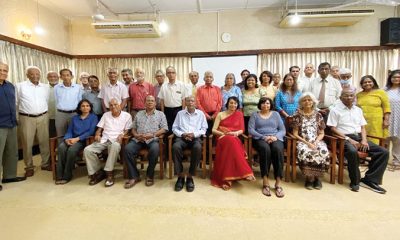Latest News
Argentina secures $42bn from IMF, others as it lifts currency controls

Argentina has clinched $42bn in medium-term funding from the International Monetary Fund (IMF) and two other financial institutions as it announced it is abandoning most of its tight currency controls.
The IMF’s executive board late on Friday approved a $20bn bailout package that will be doled out over the next four years, with an immediate disbursement of $12bn and another $2bn available after a review planned for June.
The World Bank also announced a $12bn support package for Argentina, and the Inter-American Development Bank (IDB) said it will provide up to $10bn in financing for the public and private sectors. Both are three-year plans.
President Javier Milei announced on Friday that he will – starting on Monday – lift most of Argentina’s strict capital and currency controls as part of agreements that secured the huge funding deals.
“Today we are breaking the cycle of disillusionment and disenchantment and are beginning to move forward for the first time,” he said on national television while flanked by his ministers. “We have eliminated the exchange rate controls on the Argentine economy for good.”
The capital controls, known in Argentina as “el cepo” or “the clamp”, were imposed by a previous administration in 2019 with the aim of preventing further financial downfall and capital flight that the country has been dealing with for years.
The controls clamped down on individuals’ ability to buy US dollars, giving rise to a black market that is widely used by citizens. They also restricted companies’ access to dollars, discouraging foreign investment that Milei needs.
The Argentinian central bank now aims to allow the peso to trade within a so-called currency band instead of firmly pegging the beleaguered currency to the dollar.
The band ranges from 1,000 to 1,400 pesos per greenback and will expand by 1 percent each month, according to the central bank.
In announcing its latest support package, the IMF said the programme is “expected to catalyse further official financing from multilateral sources” and “seeks to facilitate a timely return to international capital markets”.
“The program supports a path toward entrenching macroeconomic stability, strengthening external sustainability, and laying the foundation for stronger and more resilient growth,” it said, adding that its key pillars include “maintaining a strong fiscal anchor, transitioning towards a more robust monetary and FX regime”.
The organisation praised Argentinian authorities’ new commitment to a zero-deficit budget target, which has delivered the first fiscal surplus in almost two decades.
But to achieve the surplus, Milei has fired tens of thousands of state workers, with his overhauls hitting the population hard, including by raising poverty levels.
[Aljazeera]
Latest News
China’s Xi hails ‘new golden era’ with Malaysia during trade tour

Chinese President Xi Jinping has met Malaysia’s King Sultan Ibrahim in Kuala Lumpur as part of a regional push to shore up Beijing’s trade relationships.
The diplomatic stop on Wednesday marks the second leg of Xi’s three-nation tour, which also includes Vietnam and Cambodia, and comes amid sharp tariffs imposed by the United States that are reshaping the global economic landscape.
Sultan Ibrahim welcomed Xi in a colourful ceremony at the golden-domed Istana Negara palace before his meeting with Malaysian Prime Minister Anwar Ibrahim at the administrative capital of Putrajaya.
Xi touted a “new golden era” of Chinese-Malaysian relations, following the 50th anniversary of diplomatic ties last year. The king announced new cooperation between the countries in various fields, including artificial intelligence.

“This is a hugely significant visit,” said Al Jazeera’s Rob McBride, reporting from Putrajaya. “It takes place during this unprecedented trade war that is developing with the United States, with both Malaysia and China finding themselves in the middle.”
Khoo Ying Hooi, an associate professor in the department of international and strategic studies at Malaya University, said the visit offered a chance to “test the waters for regional solidarity” amid the US trade disruptions.
“It’s not just about friendship, it’s about realigning the regional centre of gravity towards Beijing,” she said.
Malaysia is the current chair of the Association of Southeast Asian Nations (ASEAN) bloc, whose members are among the hardest hit by new US tariffs.
ASEAN member Vietnam, a manufacturing powerhouse, was slapped with 46 percent tariffs, and Cambodia, a significant producer of low-cost clothing for big Western brands, was hit with a 49 percent duty.
Malaysia, Southeast Asia’s third-largest economy, was hit with a lower tariff of 24 percent. Though the measures have been paused for 90 days, President Donald Trump has warned that no country is “off the hook”.
[Aljazeera]
Latest News
Severe traffic reported on Ella-Wellawaya road due to inclement weather

Police urge motorists who intend to use the Ella – Wellawaya Road to use alternative roads as there is a severe vehicle congestion due to inclement weather condition.
Latest News
UK Supreme Court backs ‘biological’ definition of woman

The UK Supreme Court has unanimously backed the biological definition of “woman” under the 2010 Equality Act.
It marks the culmination of a long-running legal battle which could have major implications for how sex-based rights apply across Scotland, England and Wales.
Judges sided with campaign group For Women Scotland, which brought a case against the Scottish government arguing that sex-based protections should only apply to people that are born female.
Judge Lord Hodge said the ruling should not be seen as a triumph of one side over the other, and stressed that the law still gives protection against discrimination to transgender people.
The Scottish government argued in court that transgender people with a gender recognition certificate (GRC) are entitled to the same sex-based protections as biological women.
The Supreme Court was asked to decide on the proper interpretation of the 2010 Equality Act, which applies across Britain.
Lord Hodge said the central question was how the words “woman” and “sex” are defined in the legislation.
He told the court: “The unanimous decision of this court is that the terms woman and sex in the Equality Act 2010 refer to a biological woman and biological sex.
“But we counsel against reading this judgement as a triumph of one or more groups in our society at the expense of another, it is not.”
He added that the legislation gives transgender people “protection, not only against discrimination through the protected characteristic of gender reassignment, but also against direct discrimination, indirect discrimination and harassment in substance in their acquired gender”.
Campaigners who brought the case against the Scottish government hugged each other and punched the air as they left the courtroom, with several of them in tears.
The Equality Act provides protection against discrimination on the basis of various characteristics, including “sex” and “gender reassignment”.
Judges at the Supreme Court in London were asked to rule on what that law means by “sex” – whether it means biological sex, or legal, “certificated” sex as defined by the 2004 Gender Recognition Act.
The Scottish government argued the 2004 legislation was clear that obtaining a GRC amounts to a change of sex “for all purposes”.
For Women Scotland argued for a “common sense” interpretation of the words man and woman, telling the court that sex is an “immutable biological state”.

Outside the Supreme Court, For Women Scotland co-founder Susan Smith said: “Today the judges have said what we always believed to be the case, that women are protected by their biological sex.
“Sex is real and women can now feel safe that services and spaces designated for women are for women and we are enormously grateful to the Supreme Court for this ruling.”
A UK government spokesman said: “This ruling brings clarity and confidence, for women and service providers such as hospitals, refuges, and sports clubs.
“Single-sex spaces are protected in law and will always be protected by this government.”
Conservative leader Kemi Badenoch described the ruling as a “victory for all of the women who faced personal abuse or lost their jobs for stating the obvious”.
But Scottish Green MSP Maggie Chapman, a prominent campaigner for trans-rights, said: “This is a deeply concerning ruling for human rights and a huge blow to some of the most marginalised people in our society.
“It could remove important protections and will leave many trans people and their loved ones deeply anxious and worried about how their lives will be affected and about what will come next.”
The Scottish government has not yet commented on the ruling.
[BBC]
-

 News5 days ago
News5 days agoSuspect injured in police shooting hospitalised
-

 Features6 days ago
Features6 days agoRobbers and Wreckers
-

 Business6 days ago
Business6 days agoBhathiya Bulumulla – The Man I Knew
-

 Business5 days ago
Business5 days agoSanjiv Hulugalle appointed CEO and General Manager of Cinnamon Life at City of Dreams Sri Lanka
-

 Business7 days ago
Business7 days agoNational Anti-Corruption Action Plan launched with focus on economic recovery
-

 Features4 days ago
Features4 days agoLiberation Day tariffs chaos could cause permanent damage to US economy, amid global tensions
-

 Business4 days ago
Business4 days agoMembers’ Night of the Sri Lanka – Russia Business Council of The Ceylon Chamber of Commerce
-

 Features4 days ago
Features4 days agoMinds and Memories picturing 65 years of Sri Lankan Politics and Society










